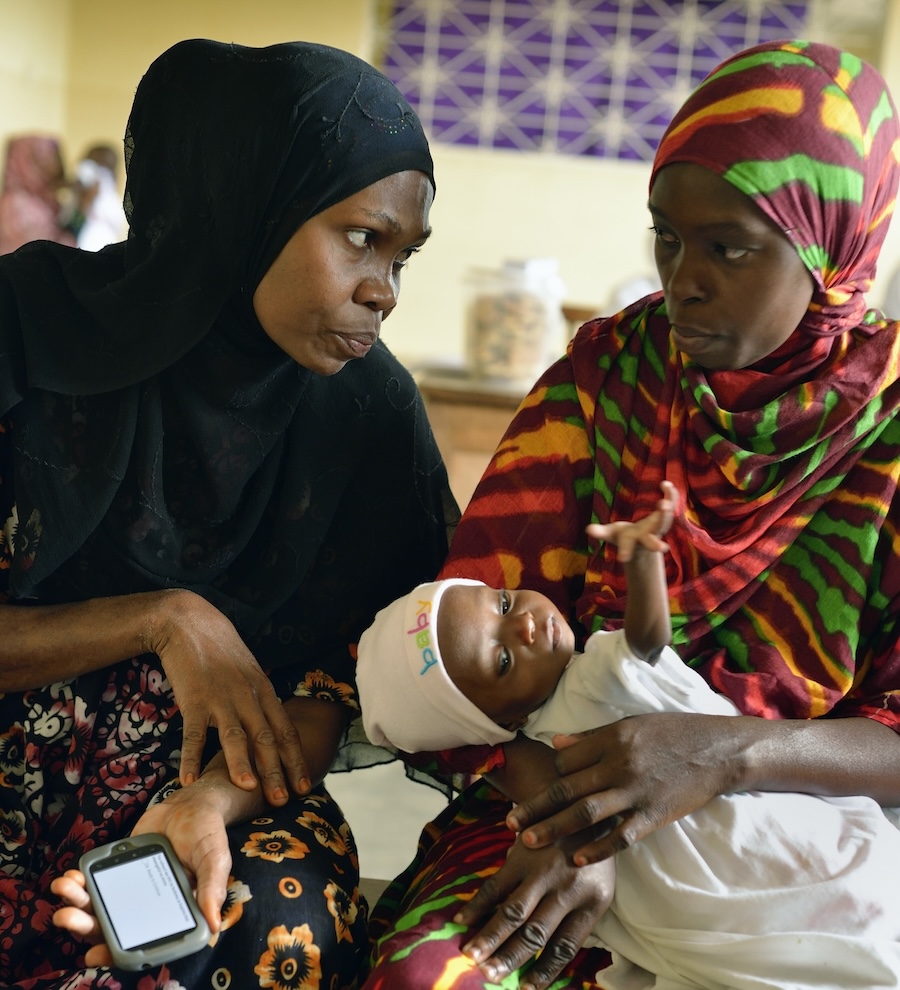Our Impact
At D-tree, we’re laser-focused on creating a real difference — and that means being driven by tangible, meaningful and sustainable impact on people’s lives.

Together with our partners, we focus on measurable outcomes and long-term viability, always keeping our vision of creating a world where everyone has access to the healthcare they need at heart.
Data and human insights provide clear evidence that our work is both effective and efficient. We rely on a mix of peer-reviewed, rigorous research, design-led research and real-world experience to continuously strengthen our programs and initiatives.
At a Glance
10,500
health workers supported
(2022-2024)
1.3 million
people served
(2022-2024)
2.8 million
health visits conducted
(2022-2024)
Maternal Health
33% increase in pregnant women delivering in a health facility
Since the expansion of Jamii ni Afya, more women are now delivering in a health facility and completing their postpartum visits. Health facility deliveries have increased by 33% and postpartum visits have gone up from 20% to 80% – both critical to preventing pregnancy and birth complications and saving lives. Successes have been driven by focusing on health challenges and local needs before introducing technology, using data to guide decisions and collaborating closely with local and global partners and funders.
Our programs reach everyone
This research includes pregnant women enrolled in the Safer Deliveries (Uzazi Salama) program (the predecessor to Jamii ni Afya). The research found that both women and newborns benefited hugely from the program and points out that wealth, education and other social factors such as age, pregnancy condition or previous stillbirth did not determine whether a mother received care.
Child Health & Development
Doubling of children with pneumonia symptoms receiving correct antibiotics
Through Afya-Tek individuals start their healthcare journey at the most convenient point of care—whether that’s a public health facility, private community drug shop or a community health worker. By creating a seamless digital referral network between these providers, Afya-Tek ensures that every person is guided to the appropriate care when and where they need it. Through engagement with private-sector drug shops, we have witnessed a doubling of children with pneumonia symptoms receiving correct antibiotics and children with diarrhea receiving ORS and zinc jumped from 13 % to 33 %.
40% reduction in child stunting
Our work has played a key role in reducing stunting by ensuring that community health workers provide essential nutrition services during child visits. Community health workers screen all children under five for malnutrition and anemia, monitor growth and measure upper arm circumference to detect acute malnutrition early and will refer at-risk children to health facilities if necessary. Beyond child nutrition, community health workers also support mothers by promoting healthy diets, antenatal care and breastfeeding. They encourage immunizations to prevent diseases that hinder growth and improve water, sanitation and hygiene to reduce infections—ensuring children grow up healthy and strong.
Children have improved cognitive, linguistic and motor development skills
In 2024, a study on Jamii ni Afya revealed remarkable results, showing real changes in how children move, think, communicate and connect with their caregivers. More caregivers can now recognize key child health danger signs (24% to 50%) and they are 2.5 times more likely to understand good nutrition. Families are nearly four times more likely to have books at home, while fathers are engaging in play at unprecedented rates—over 11 times more likely to participate in one activity and nearly 50 times more likely in four or more. These shifts lay a powerful foundation for children’s lifelong learning and well-being.
Manuscript under review (March 2025)
